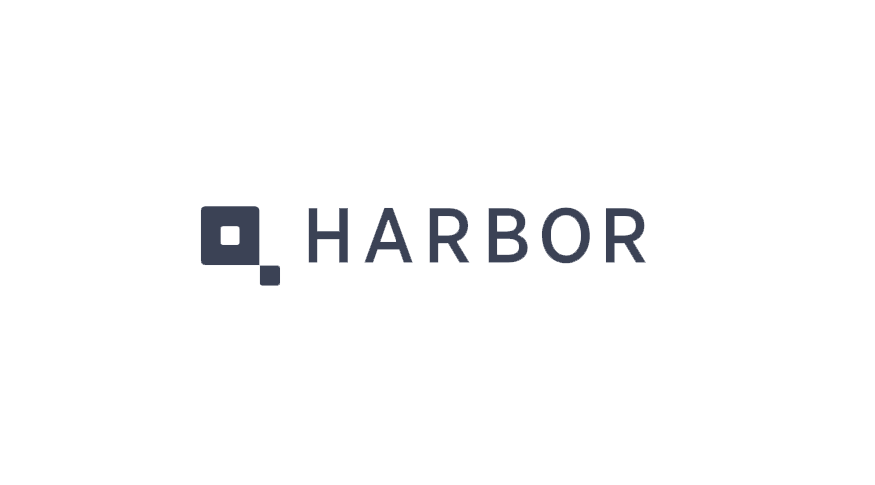Blockchain technology company Harbor launched today to address the regulatory challenges of trading private securities on blockchains, including Initial Coin Offerings (ICOs).
Moreover, Harbor announced a $10 million in Series A financing to build its decentralized compliance protocol for standardizing crypto-securities issuance and trading. The financing was led by Vy Capital, Fifth Wall Ventures and Valor Equity Partners. Previously, Harbor was incubated by the new firm Craft Ventures.
More than $3.7 billion was raised through ICOs in 2017, yet nearly all were issued as utility tokens (non-securities). Harbor’s announcement comes as ICOs face increasing examination from regulators.
The U.S. Securities Exchange Commission has warned that many ICOs may ultimately be classified as securities and has already taken action against several firms for violations. Harbor helps protect issuers and investors by making it easier to abide by securities, tax and other regulatory requirements when issuing and trading crypto-securities.
“Blockchains have revolutionary potential to improve liquidity and transparency for private securities, but regulatory compliance remains a significant roadblock,” said Bob Remeika, Harbor co-founder, and CTO. “We created Harbor to deliver critical compliance infrastructure needed for crypto-securities. The Harbor protocol will allow issuers to play by existing rules, enforcing compliance across all transactions and jurisdictions — from ICOs to secondary trades.”
“Blockchains are revolutionizing capital markets, and the Harbor team is extremely well positioned to capitalize on this,” said David Sacks, Harbor chairman and co-founder of Craft Ventures, which originally provided seed funding for the startup. “Harbor’s compliance protocol is needed to standardize how crypto-securities are issued and traded.”
The Crypto-Securities Opportunity and Challenge
Blockchain created the perfect ledger to transform the private securities market, simplifying the transfer of ownership and providing the foundation for liquidity for traditionally illiquid assets. However, liquidity also brings significant challenges to issuers and investors. Private securities must adhere to the regulations of governing jurisdictions, not only for the initial issuance but for all secondary trades. These regulations can require limiting the number of total investors, only allowing specific types of investors (e.g. accredited investors), implementing a holding period, and applying many other rules.
“2018 will mark the beginning of the tokenized securities wave, a massive opportunity that could unlock billions in value within the private securities market,” said Stephen McKeon, a finance professor at University of Oregon, who is an adviser to Harbor. “Frictions to trade subject many traditional assets to illiquidity discounts, but these frictions can be relaxed through tokenization, thereby enhancing asset value. Harbor’s decentralized compliance protocol is precisely the type of standard the industry needs to help usher in this coming wave.”
Real estate assets including real estate funds, private REITs, land, and building ownership can benefit greatly from the improved efficiency, transparency, liquidity and fractional ownership possibilities of blockchain. However, real estate has unique and complex legal and tax requirements beyond standard securities regulations. For example, private domestically controlled REITs have several restrictions that must be addressed, including limits on non-US investors, the minimum number of investors, tax withholdings for foreign investors and more.
“Harbor’s flexible approach addresses the complex compliance requirements for real estate,” said Brad Greiwe, co-founder and managing partner of Fifth Wall and Harbor board member. “Harbor represents the key to unlocking an unprecedented amount of value by providing the rails to democratize access to the most valuable asset on earth, real estate.”
“Without the right infrastructure, crypto-security offerings and trading can easily violate laws and regulations,” said Paul Vronsky, general counsel of VY Capital and Harbor advisor. “For example, it’s not just the issuer’s jurisdiction that matters. The jurisdictions where investors reside also have to be taken into account. Harbor’s approach addresses these complexities with a decentralized protocol that works across exchanges and jurisdictions.”
The Regulated Token Standard (R-Token)
The Regulated Token (R-Token) standard, one of Harbor’s first initiatives, is an open source compliance framework for embedding regulatory compliance at the token level, only permitting transactions to occur if they meet applicable rules. Issuers, broker-dealers, underwriters, and/or regulatory bodies can implement the R-Token standard to meet jurisdictional securities regulations, know your customer (KYC) policies, anti-money laundering (AML) requirements, tax considerations, and more. The R-Token standard is a system of ERC-20 smart contracts built on the Ethereum blockchain and compatible with the ERC-20 ecosystem.
“The Harbor protocol will move the industry forward by enforcing regulatory compliance at the token level, thereby meeting core securities requirements regardless of where the trades occur, whether within centralized or decentralized exchanges,” said Remeika.
